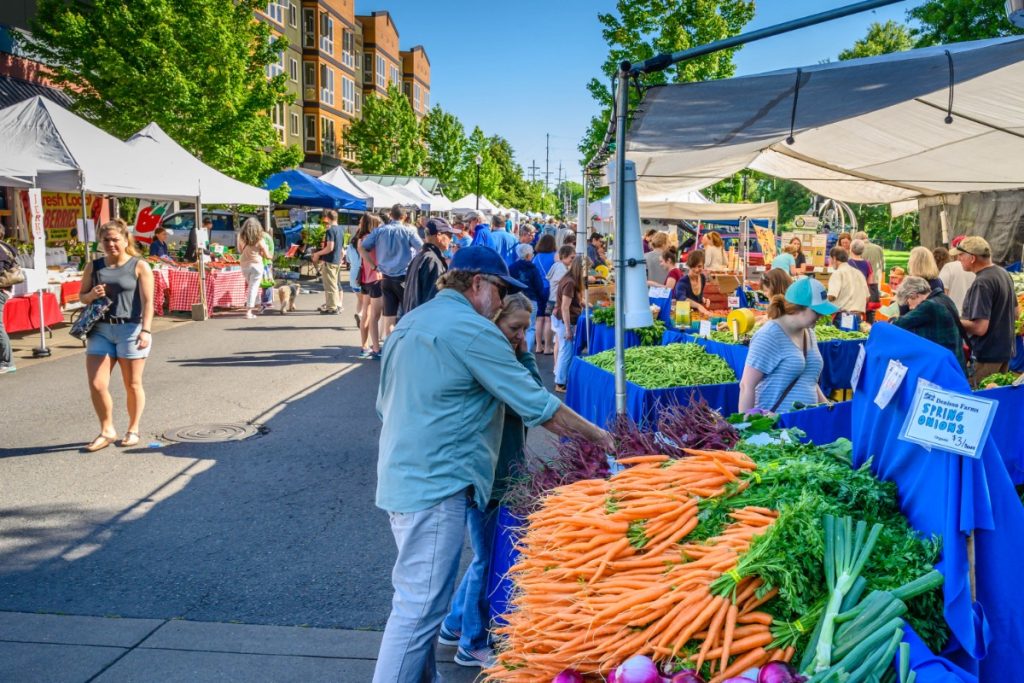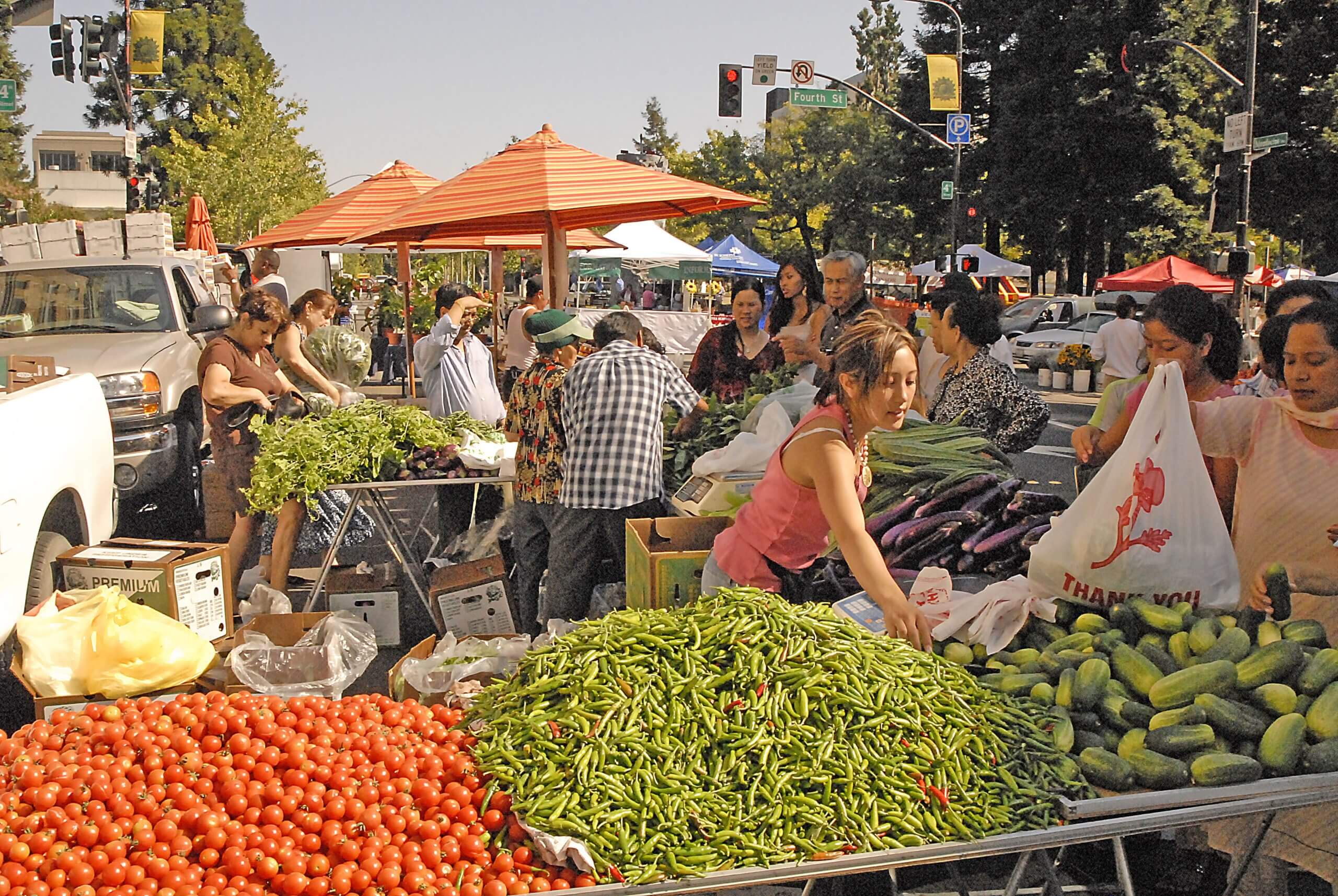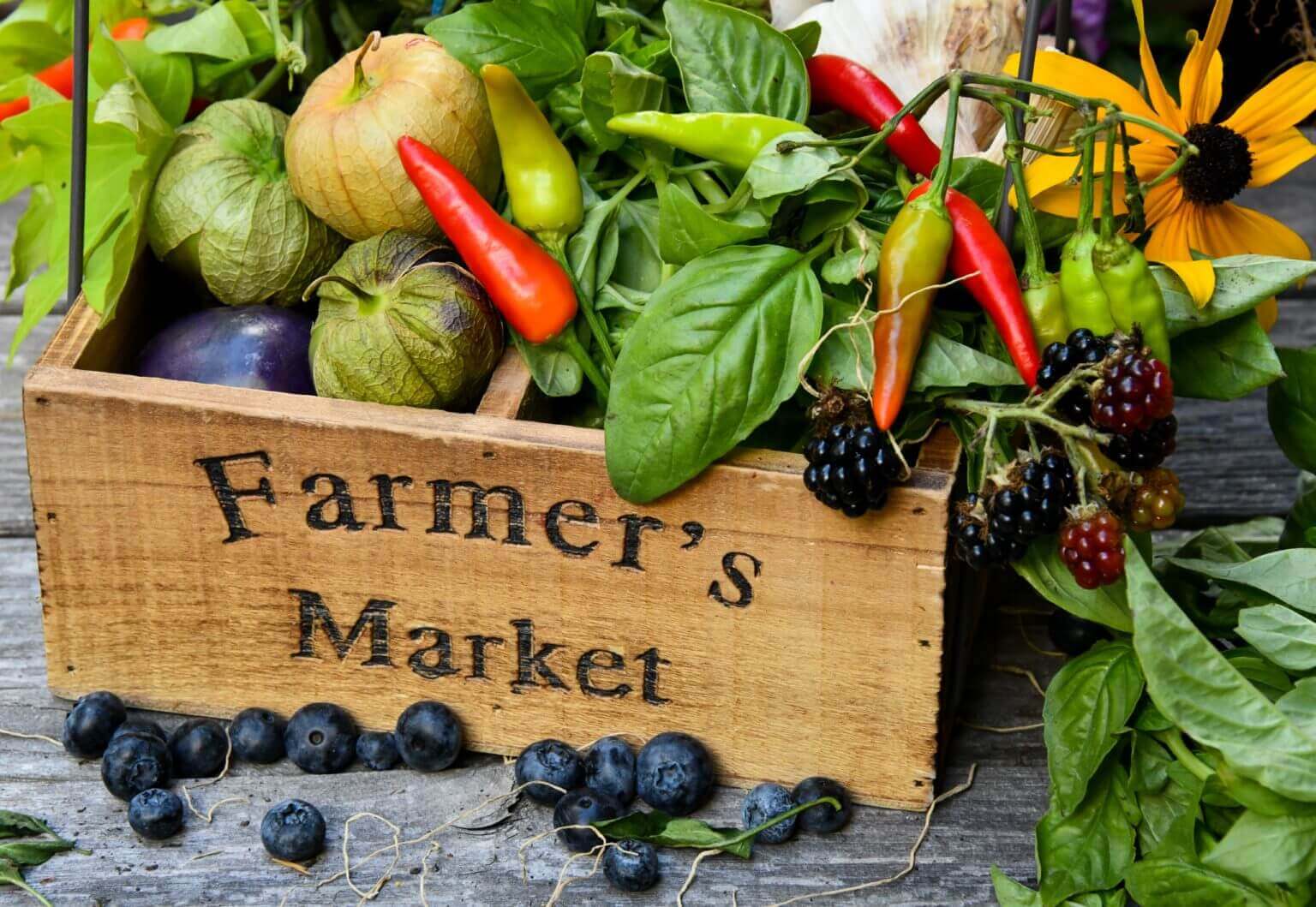Farmers’ markets are actual or virtual locations where regional producers, artists, and farmers congregate to sell their wares to customers directly. Fruits, vegetables, meats, dairy items, baked foods, and handcrafted crafts are just a few of the varied products available at these markets.
Background Information in History
Markets for farmers have a long history that dates back to prehistoric times. They were a typical sight in colonial America, as farmers would congregate in town squares to sell their excess produce. Markets for farmers have changed and adjusted over time to reflect shifting consumer tastes and financial circumstances.

Farmers’ Markets’ Benefits
Fruit that is both organic and fresh
Fresh produce grown nearby can be bought at markets for farmers, which is one of their main draws. Fruits and vegetables at farmers’ markets are frequently picked just hours before being sold, in contrast to those found in supermarkets, which may have travelled thousands of miles and spent days in storage.
Encourage the communities and farmers in your area.
Customers can directly support regional farmers and craftspeople by making purchases at markets for farmers. With the help of this direct-to-consumer business model, producers may maintain social mobility while charging a reasonable price for their goods.
Sustainability and its effects on the environment
Markets for farmers help to advance sustainable agricultural practices by lowering the carbon footprint of food packaging and transportation. Furthermore, a lot of markets for farmers and merchants give organic and eco-friendly farming practices priority.
Farmers’ Market Types
Customary outdoor markets
The most famous markets for farmers are probably the outdoor ones, with their rows of vendors covered by canopies or tents. These markets are popular in the summer months and are usually conducted in public areas like parks, parking lots, or town squares.
Indoor marketplaces
For shoppers, indoor markets for farmers offer a year-round option, particularly in areas with severe winters or bad weather. These markets are frequently found in community centres, converted warehouses, or gyms.
Markets for farmers online
Online markets for farmers have become more prevalent in recent years due to the growth of e-commerce. Through websites or mobile apps, these platforms facilitate the connection between consumers and local producers, providing the convenience of scheduled pickup or home delivery.
Locating Markets for farmers
Websites and local directories
Markets for farmers are listed online by numerous towns and cities, along with their locations, schedules, and vendor bios. Customers can easily research new markets and schedule their travels with the help of these services.
Social media networks
Social media sites like Twitter, Facebook, and Instagram are useful resources for learning about future events and markets for farmers. A lot of marketplaces have specific pages or hashtags where vendors share news and offers.
Neighborhood bulletin boards
Flyers and posters promoting local markets for farmers are frequently displayed on community bulletin boards found in libraries, coffee shops, and grocery stores. These low-tech marketing initiatives aid in word-of-mouth communication and consumer acquisition.

Advice for Getting Around Markets for Farmers
Make a plan beforehand.
Take some time to make a shopping list based on your dietary requirements and seasonal availability before you head to the markets for farmers. This will make shopping more efficient and help you avoid making impulsive purchases.
Bring cash and reusable bags.
It’s common for markets for farmers and vendors to accept cash only, so make sure you pack lots of little notes and coins. To further minimize plastic waste, think about carrying reusable bags or baskets to carry your purchases.
Interact with suppliers
Never be afraid to engage in discussion with sellers and inquire about their offerings. Many farmers have a strong sense of passion for what they do and are willing to impart knowledge about their sustainable agricultural techniques.
Read More Dominate Locally: Local Market Expansion Tactics
Featured Items at Markets for farmers
Vegetables and fruits
Markets for farmers provide a veritable rainbow of seasonal food, rich with nutrients and flavour, from crisp apples to heirloom tomatoes. Seek out unusual types, like striped watermelons or purple carrots, that aren’t found in stores.
Handmade products
Markets for farmers are treasure troves of artisanal goods, including handmade cheeses, breads, jams, and honey, in addition to fresh fruit. These regionally produced goods are great as presents or pantry additions.
Ready-to-eat meals
Food sellers offer ready-to-eat meals, snacks, and beverages produced from ingredients that may be found locally at many markets for farmers. Indulge in a gourmet sandwich, a wood-fired pizza slice, or a cool drink of lemonade.

FAQs
Which days are ideal for weekly visits to farmers’ markets?
Many Markets for farmers are hosted on weekends; therefore, Saturday or Sunday are the best days to visit once a week, however, timetables differ by town.
How can I locate local farmers’ markets?
Social media networks, neighbourhood websites, and local directories are great places to look for Markets for farmers in your area.
Are summertime months the only times that markets for farmers are open?
While some markets are seasonal, many are open year-round and provide a wide range of goods.
Is organic produce available at farmers’ markets?
Yes, a lot of farmers’ market sellers sell certified organic products in addition to organic fruits and vegetables.
Which forms of payment are recognized at farmers’ markets?
Although most merchants prefer cash, more and more farmers’ markets increasingly accept electronic payment options, including credit and debit cards.
In summary
In conclusion, there are a lot of advantages to including weekly markets for farmers in your shopping routine, such as enjoying fresh, in-season vegetables and helping local farmers. Customers can personally witness the benefits of eating locally and sustainably by developing relationships with merchants, encouraging sustainability, and participating in the community. Why then wait? This week, stop by your neighbourhood markets for farmers to witness the magic for yourself!










